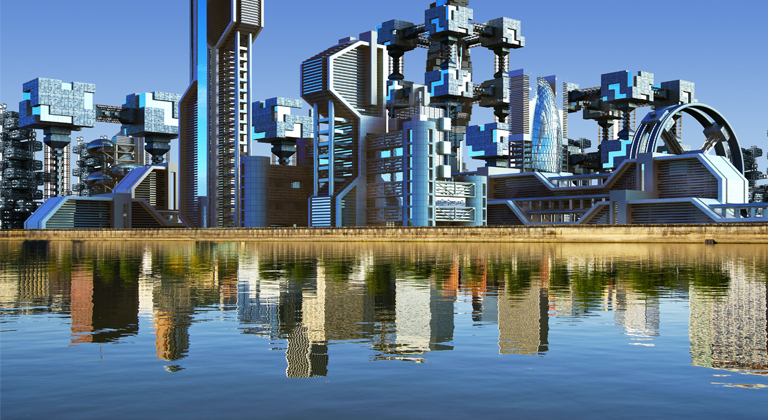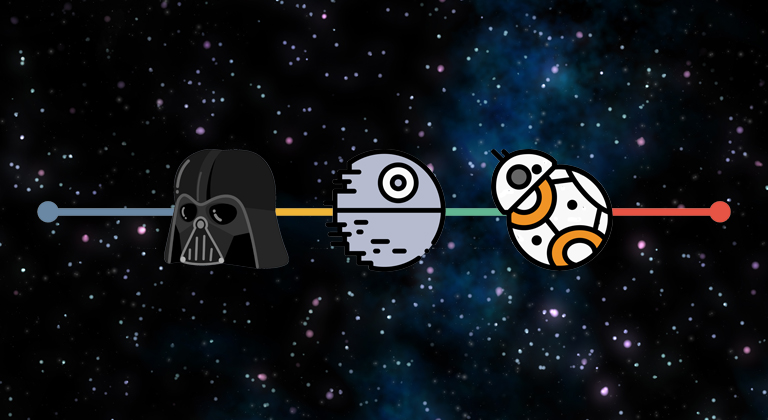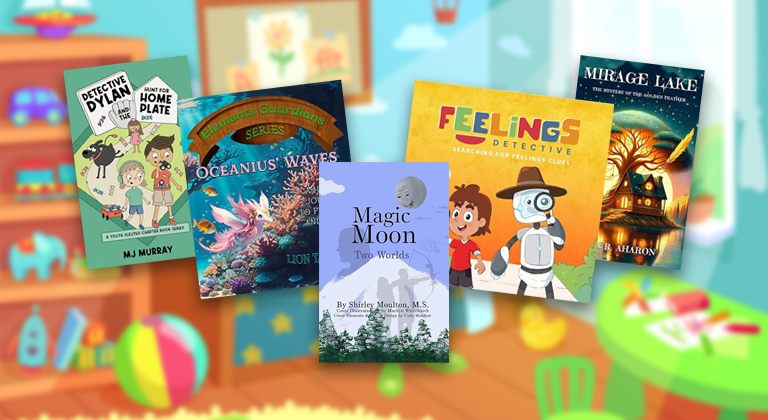Using Science Fiction Writing to Reflect Reality
Science fiction, a genre where futuristic worlds and advanced technologies serve as the setting for exploring profound societal issues, has always been more than mere escapism. For as long as the genre has existed, it’s been used to mirror both our deepest anxieties and our highest aspirations. By using fantastical backdrops to delve into pressing issues, authors not only captivate readers but also subtly encourage reflection on real-world challenges.
By providing examples of how legendary sci-fi writers have used their stories as platforms for commentary and change, Ginger illustrates how we, too, can use our science fiction writing to not just entertain, but also challenge, inspire, and perhaps even influence how our future unfolds.
I love all types of books and stories, but science fiction has always had a special place in my heart. Growing up, I used to devour my father’s huge collection of science fiction paperbacks and short stories, becoming familiar with the great sci-fi writers of the 50s and 60s like Isaac Asimov, Robert Heinlein, and Arthur C. Clarke.
Later, I’d become fascinated with movies like Star Wars and TV shows like Star Trek: The Next Generation, which showed a vision of galaxies “far far away” that still had to deal with problems that I was familiar with in real life.
In fact, that’s what makes science fiction so compelling to me – and to the millions of sci-fi fans worldwide. Science fiction, with its fantastical spaceships, alien encounters, and dystopian futures, might seem far removed from the real world – but the genre actually has a rich and well-documented history of tackling very real issues through the lens of imaginative worlds.
In fact, that’s why many self-published authors continue to gravitate towards writing SF. Fictional conflicts set on distant planets are perfect for exploring pressing societal concerns that we might not have otherwise had the opportunity to write about comfortably – and good science fiction writing should always prompt reflection and discussion in a way that straight-up non-fiction sometimes can’t.
So, in this week’s blog post, I wanted to explore the attraction of writing science fiction, and discuss how famous science fiction writers have managed to craft not just gripping narratives, but also weave in messages about real-world issues that resonated with generations of readers. Hopefully, there’s something you can learn from them which you can apply to your own self-published science-fiction writing.
A Brief History of Science Fiction
Most people might think that sci-fi is a fairly recent genre of fiction. After all, it makes sense that people only started writing about speculative new futures because of the rapid development of modern-day technology.
However, the genre actually has a rich history extending back far further than our modern age – with some arguing that science fiction’s roots actually extend all the way back to the earliest myths that blurred the lines between fact and fantasy.
The Epic of Gilgamesh, a Mesopotamian tale from around 2000 BCE featuring a flood and a journey for immortality, which some people argue could be considered an early example of science fiction.
However, most fans agree that sci-fi only truly took shape alongside the development of science itself. Coinciding with the creation of the “scientific method” in medicine and research, the 17th and 18th centuries were when the genre really began – with Mary Shelley’s Frankenstein (1818) often considered the first “true” example of science fiction.
As the world witnessed science conquer more and more real-life challenges in the 19th century, stories about science conquering fiction challenges also grew more popular. Eventually, this would evolve into science fiction as its own unique genre of fiction, and trigger the rise of icons like Jules Verne, whose Twenty Thousand Leagues Under the Sea (1870) and Journey to the Center of the Earth (1864) captured imaginations with the technological marvels he envisioned.
H.G. Wells, another giant, tackled social issues through sci-fi in works like The Time Machine (1895) and examined mankind’s place in the universe with War of the Worlds (1893).
But it wasn’t until the 20th century that science fiction really found its place. Pulp magazines like Amazing Stories (1926) provided a platform for new writers like Isaac Asimov, known for his Robot series exploring artificial intelligence, and Arthur C. Clarke, who predicted communication satellites in Childhood’s End (1953). Sci-fi giants like Ray Bradbury, author of Fahrenheit 451 (1953), tackled dystopian futures, sparking conversations about censorship and technology which still resonate today.
As a result of their work, people began to recognize that science fiction was having an undeniable impact on society. Science fiction has:
- Inspired technological advancements: Satellites, envisioned by Arthur C. Clarke, have now become a crucial part of our communication infrastructure.
- Prompted ethical discussions: Works like Frankenstein raised questions about scientific responsibility, while books like Fahrenheit 451 explored how technology could be used to curb freedom of thought and expression.
- Fueled space exploration: Sci-fi has undoubtedly inspired humanity’s fascination with space, leading generations to first dream of conquering the stars, and then to actually launch beyond the atmosphere and actually do it.
Today, sci-fi is not just more popular than ever, but it’s also more diverse – with subgenres dedicated to stories tackling climate change, genetic engineering, and artificial intelligence. Science fiction continues to be a mirror reflecting our hopes, fears, and the ever-evolving relationship between science and society, and as a result it’s the perfect genre for authors seeking narrative freedom to explore these important issues.
Fiction Mirroring Reality
Mary Shelley’s Frankenstein is generally accepted as the first science fiction story, and it established that exploring real-life issues is an essential part of the formula. Since then, countless other authors have followed in her footsteps.
It’s almost impossible to list all of the science fiction books that have explored real-life issues, but here are some I think most people will agree have been impactful:
- 1984 by George Orwell (1949): Written in the shadow of World War II and the rise of totalitarian regimes, Orwell’s dystopian novel depicts a world controlled by the omnipresent “Big Brother.” Mass surveillance, government manipulation of truth, and the suppression of individuality were all anxieties of the time. Through Winston Smith, a man yearning for freedom, Orwell explores the dangers of unchecked power and the importance of independent thought. For those of us who kept track of “The Twitter Files” and “Russiagate” in recent news cycles, Orwell’s book seems more relevant than ever.
- The Handmaid’s Tale by Margaret Atwood (1985): Atwood’s chilling tale presents a future America transformed into a theocracy called Gilead, where women are subjugated and forced into reproductive servitude. Published during a period of heightened concern about abortion rights and women’s roles, the novel explores themes of oppression, religious extremism, and the control of women’s bodies. Given how the Supreme Court recently overturned Roe v. Wade, Atwood’s dystopian future still seems alarmingly plausible.
- Do Androids Dream of Electric Sheep? by Philip K. Dick (1968): This thought-provoking novel, later adapted into the film Blade Runner, explores the nature of humanity and consciousness through the lens of replicants – bioengineered androids nearly indistinguishable from humans. Dick, grappling with questions of identity and empathy in a rapidly changing world, delves into the ethical implications of artificial intelligence and the very definition of what it means to be human. As the world teeters on the brink of developing true Artificial General Intelligence, what Dick wrote as science fiction might soon become science fact.
- Dune by Frank Herbert (1965): Set on the desert planet Arrakis, Dune is an intricate tale of ecology, politics, and religion. The spice melange, a vital resource with mind-altering properties, fuels interstellar travel but also threatens to destroy the delicate ecosystem of Arrakis. Herbert, concerned about environmental exploitation and resource wars, crafts a complex story that explores humanity’s relationship with the natural world and the dangers of greed and colonialism. As the Middle East stands balanced on the knife edge of war, the parallels between real-life and Dune are more obvious than ever.
- The Dispossessed by Ursula K. Le Guin (1974): Le Guin, a champion of social justice and critical of capitalism, presents Anarres, a utopian anarchist society built on the moon by those seeking an alternative to Earth’s stratified society. However, Anarres grapples with internal conflicts, highlighting the challenges and complexities of achieving utopia. Through Shevek, a gifted physicist yearning for knowledge from Earth, Le Guin explores political ideologies, the cost of our relentless pursuit of knowledge, and whether the possibility exists of creating a truly just society.
Harnessing the Power of Fiction
These are just some of my favorite examples of how science fiction authors have tackled real-world issues – and as a self-published author, it’s important to remember that your writing could have this same power.
So, if you’re a fan of science fiction – and write it yourself – don’t be afraid to get your hands dirty and start exploring the real world through a fictional lens. Think about the issues that you truly care about – whether that’s climate change, social inequality, or the dangers of abusing technology – and consider exploring them within a fictional world.
Where you start is up to you – but a great option might be to follow the examples set by the authors I listed above and imagine a future in which the problems you care about most have escalated to the point that society is forced to take action to solve them. Then, explore what impact that “solution” might have on your characters.
I’ve already written a blog post about world-building in science fiction and fantasy that might help. My only additional advice is to keep your science fiction stories grounded. Use well-developed, relatable characters to explore them – not just presidents, kings, and generals. The world is always experienced through human eyes, and your story serves as a window into that experience.
And by creating a captivating, character-driven story, you can make complex ideas more accessible to people, and spark conversation inspired by your take on the issues. Readers will connect with your message on a deeper level when you frame the problem through the experiences of engaging characters facing relatable challenges. Science fiction gives you the opportunity to control the narrative and drive the conversation – planting seeds of thought that challenge mainstream assumptions and might – just might – actually inspire change.
So, get out there and write!
Science fiction is a vast and flexible genre, allowing you to explore the issues that are most important to you in creative and unrestricted ways. Channel your passion to create stories that not only entertain and engage, but also challenge and inspire people.
After all, the whole point of science fiction is that the future isn’t set in stone – and your words might have the power to influence what form it takes.









